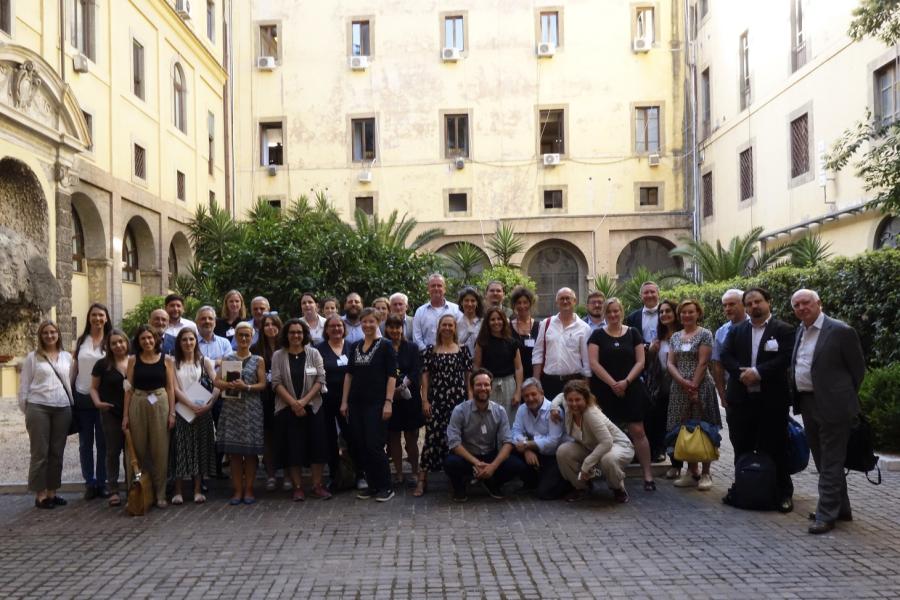On 20 and 21 June 2022, the Urban Agenda Partnership on Culture and Cultural Heritage met in Rome and online for its final Partnership meeting and conference.
It was a precious moment – to meet in person after two years of digital meetings – and offered the opportunity to look back and ahead. The more than 60 participants reflected – and celebrated – the achievements and insights of their three-year work. The discussions brought to life the many layers of insights, results and recommendations as well as outputs of the Partnership’s work and its eleven Actions.
In addition, the discussions revealed: While the Partnership is entering into its final phase, it also marks a new beginning. Now it is time to set the foundations for the dissemination of the results, to ensure the continuity of valuable actions with new outputs and to “build bridges” to future steps.
In these next months in 2022, the Partnership will work on summarizing its legacy and finalising its political and strategic recommendations for the EU, Member States as well as regions and cities. Among these are:
- Culture and cultural heritage require a broad, integrated, holistic understanding, taking into consideration several layers: social, economic and environmental factors; the natural and built heritage; tangible and intangible dimensions; the recognised and listed as well as the informal heritage (for example the value and identity of places given by local communities).
- Culture and cultural heritage can make fundamental contributions to protect democracy: We share a joint history and connecting events that are cornerstones for our European democratic values. In addition, cities are the places where democracy was first developed (i.e. the foro romano and the Greek agorà).
- Culture and cultural heritage can play an important role in increasing cities’ resilience against crises and threats, among them climate change and the digital divide. Their importance has become especially evident during the COVID-19 pandemic lockdown.
- Culture and cultural heritage of European cities are drivers for sustainable, inclusive and green urban development.Establishing integrated approaches that strengthen links between relevant planning departments (formal and informal) and municipal cultural facilities (i.e. public libraries, cultural centers, etc.) as the starting point for further urban development should be the guiding principle in the practice of European cities.
- Culture and Cultural heritage play a key role in integrated sustainable territorial/urban development and social interaction. Spaces should be rehabilitated by connecting place-based and people-based approaches: They should recognise the built and natural specificities of each place gained from collaborative processes with local communities.
Action Leaders are currently completing the communicative summaries – the so-called “booklets” – of each Action, which contain links to their valuable outputs: reports, handbooks, toolboxes, apps, etc. We invite you to take a look at these working documents in our online repository: http://www.ponmetro.it/home/organizzazione/the-partnership-on-culture-cultural-heritage-of-the-urban-agenda-for-the-eu/
After having completed all publications, the Partnership will discuss its recommendations with the relevant Directorates General of the European Commission and finalize them during a political conference in Brussels planned for winter 2022.
Contact of the CCH Partnership coordinators:
Sandra Gizdulich (sandra.gizdulich.esp@agenziacoesione.gov.it)
Giovanni Pineschi (giovanni.pineschi.esp@agenziacoesione.gov.it)
Jan Schultheiß (Jan.Schultheiss@bmi.bund.de)

- Zaloguj się, aby zamieszczać komentarze

